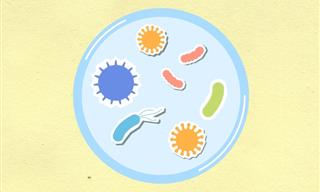Why Are Proteins Important For Teeth?
Proteins are the building blocks of cells and tissues, and teeth are no different. In the teeth, by far the most common protein is collagen, which is abundant in the dentin layer of your teeth.
As you can see in the image below, a tooth consists of 3 main layers:
- the innermost pulp layer
- the dentin (marked in gray)
- the protective enamel.
The majority of proteins are contained in the middle dentin layer of the teeth, and they are essential for stability and bone density, both of which are key for maintaining healthy teeth.
According to recent research, hydrogen peroxide, the main whitening ingredient in over-the-counter teeth-whitening products, can decompose significant amounts of collagen (and possibly other proteins, too) in the dentin. This was shown and reaffirmed in 3 different studies, all of which concluded that even the concentrations of hydrogen peroxide found in drugstore products can significantly deplete the dentin.
In one study, the researchers looked at the impact of whitening agents on whole teeth. The second study demonstrated that the collagen in the dentin was decomposed into smaller fragments after exposure to hydrogen peroxide. The last study, looked at the interactions of pure collagen with hydrogen peroxide and analyzed the structure of the protein after the exposure.
Is There a Safe Amount Of Hydrogen Peroxide and Other Ways to Strengthen Your Teeth?
The researchers suggest that the safe amount hydrogen peroxide depends on the individual. Basically, collagen damage occurs together with increased sensitivity. When the level of hydrogen peroxide is too high for a specific individual, it causes increased sensitivity by damaging the dentin fibers.
So, you can gauge how much exposure to hydrogen peroxide your teeth can take by how sensitive your teeth have become after the treatment. Whitening products today come in a variety of strengths, varying from 6-14% in over-the-counter products and going up to 25% in in-office treatments.
And while your dentist can gauge the concentration of hydrogen peroxide when providing a treatment, you are responsible for that when you’re using an at-home teeth-whitening product.
Apart from that, dentists suggest combining whitening treatments with fluoride dental care products, which can help strengthen your teeth. There are specialized fluoride rinses and toothpastes that you should incorporate into your routine while undergoing a whitening treatment.
Finally, professionals warn that using teeth-whitening products (such as mouthwash) long term is ill-advised, it is better to use them periodically, when you feel the need to whiten your teeth. In the end, it is likely that your teeth will recover after a whitening procedure if you take care of them, but it is necessary not to overindulge in teeth-whitening products and be aware of the potential dangers.
 Go to BabaMail
Go to BabaMail



























